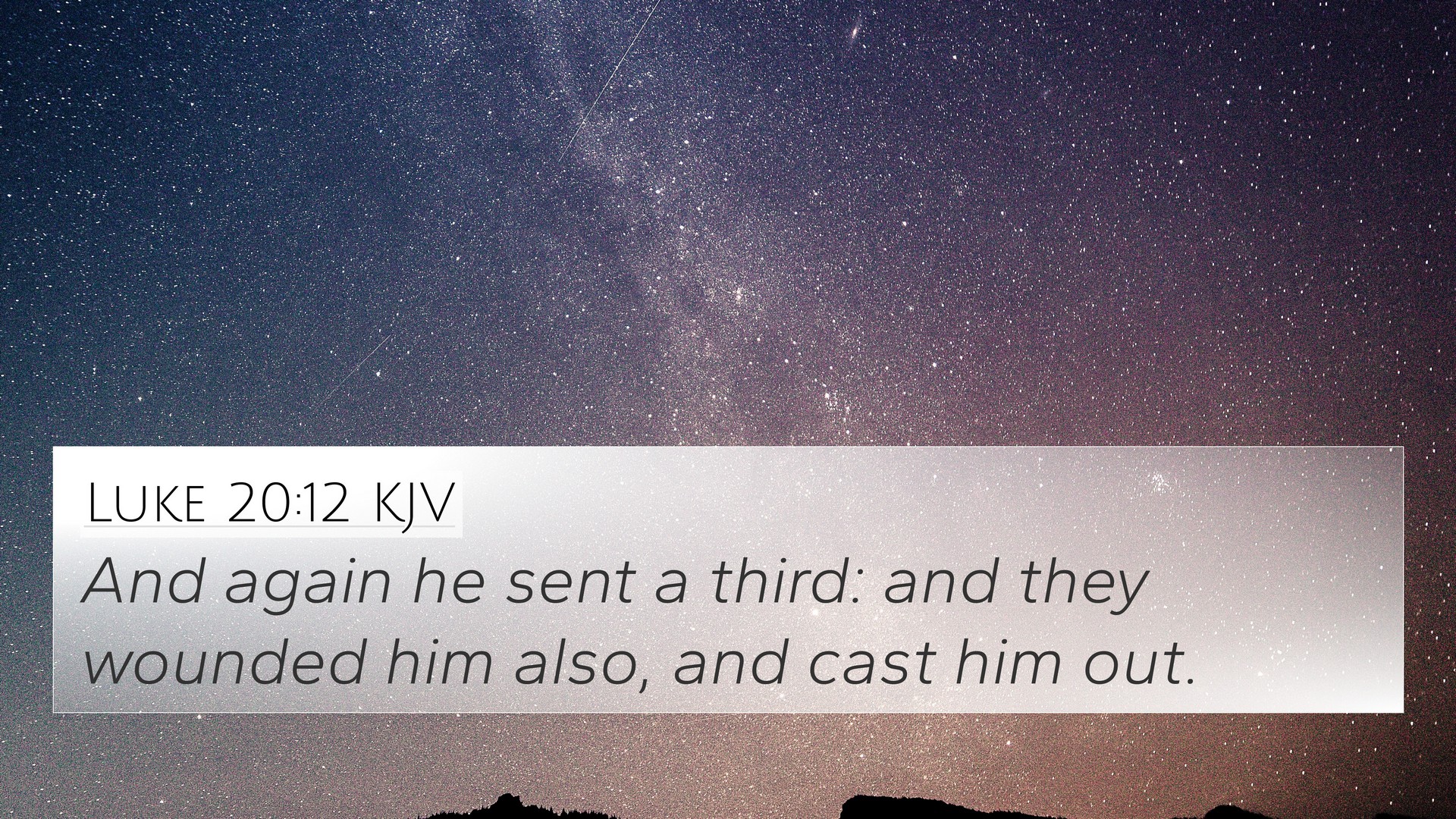Understanding Luke 20:12
In Luke 20:12, we find a profound illustration of God's patience and the consequences of rejecting His messengers. This verse is part of a parable that Jesus tells, which serves as a poignant reminder of divine love and justice. In the parable, the householder represents God, the vineyard symbolizes Israel, and the servants illustrate the prophets sent by God. Finally, the beloved son represents Jesus Himself.
Verse Text
Luke 20:12 (KJV): "And again he sent a third: and they wounded him also, and cast him out."
Commentary Insights
Matthew Henry's Commentary
Matthew Henry explains that this verse showcases the relentless efforts of God to reach His people, even in the face of repeated rejections. The third servant, who is wounded and cast out, signifies the culmination of God's frustration with the persistent unfaithfulness of Israel. This portrayal emphasizes God's infinite mercy and the tragic consequences of rejecting His messages.
Albert Barnes's Notes
Albert Barnes elaborates that the sending of the third servant represents the last plea for reform and acceptance before the ultimate judgment. The violence done to the servant indicates the grave sin of the people, rejecting not just the messenger, but ultimately, God's authority. This verse serves as a sobering reminder of the seriousness of sin and the consequences when God's invitation is refused.
Adam Clarke's Commentary
Adam Clarke comments on the deeper spiritual implications of the wounds inflicted upon the third servant. He notes that this act of violence reflects the broader spiritual battles faced by God's messengers. Clarke suggests that this parable is rich with meaning about the relationship between God and humanity, emphasizing the necessity for repentance and the recognition of divine authority.
Key Themes
- Divine Communication: God continually reaches out to humanity despite rejection.
- Rejection of God's Messengers: The suffering of the servants illustrates the cost of rejecting God's truth.
- Consequences of Sin: The violent response mirrors the spiritual consequences of its rejection.
- Hope for Redemption: Despite the repeated rejections, God's offer for redemption remains available.
- Judgment and Justice: The eventual judgment serves as a warning against continued disobedience.
Cross-References
This verse connects with several other scripture passages, highlighting the themes of divine persistence and human rejection:
- Isaiah 5:1-7: The parable of the vineyard, illustrating God's care for Israel.
- Matthew 21:34-39: A parallel account of the vineyard tenants and their treatment of the owner's servants.
- Hebrews 11:36-38: The suffering of prophets and servants of God as a testament to their faithfulness.
- Jeremiah 7:25-26: God's lament over Israel's continued refusal to listen to His prophets.
- Acts 7:51-53: Stephen's indictment of Israel for resisting the Holy Spirit and rejecting God’s messengers.
- Luke 13:34: Jesus lamenting over Jerusalem for killing the prophets sent to her.
- Matthew 23:37-39: A further lamentation of Jerusalem’s rejection of God’s messengers.
Conclusion
Luke 20:12 serves as a stark reminder of the cost of rejecting divine truth and the message of God's relentless love for His people. Through the insights offered by Matthew Henry, Albert Barnes, and Adam Clarke, we see the deep implications of this verse and its call to recognize and accept God's ongoing invitation to repentance and faith. As we engage with this verse, utilizing tools for Bible cross-referencing, we uncover a network of links that enhance our understanding of Scripture's interconnectedness, illuminating the warnings and assurances present throughout the Bible.


